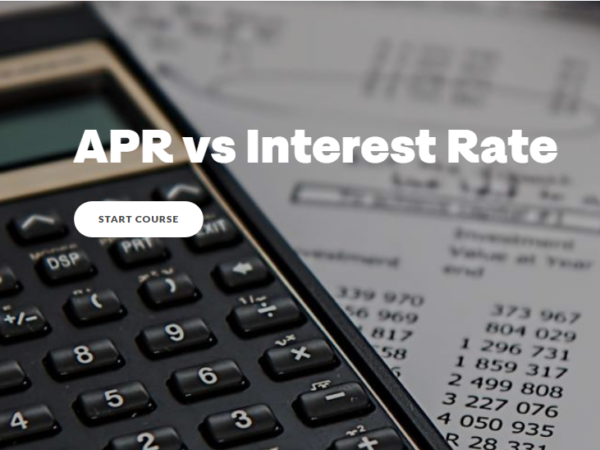Debt or Equity Financing
If you need outside funding to grow your business, ask yourself four questions before choosing between debt and equity financing.

If you are a business owner who needs an influx of capital, you typically have two choices: debt or equity financing. Debt financing means you’re borrowing money from an outside source and promising to pay it back with interest by a set date in the future. Equity financing means someone is putting money or assets into the business in exchange for some percentage of ownership. Each has its pros and cons depending on your needs.
Before deciding which option is right for you and your business, ask yourself these four important questions:
1. How fast do you need cash?
With debt financing, you’ll save a lot of time, and you’ll receive the money relatively quickly, typically within a few days to a few weeks. You can also use financing for either the short or long-term. Short-term financing is revolving and is used for purposes like inventory or material costs. Long-term debt financing is considered an installment, and typically finances machinery, equipment, or start-up costs. With debt financing, the terms are straightforward and laid out at the beginning. You know exactly how much you’ll be paying back and by what date.
Equity financing takes more time. Business owners and investors will go back and forth negotiating the investment package, meaning what percentage stake will be given in exchange for funding, and a lot of time is spent discussing the future value of the business. If you’re dealing with more than one investor, differing opinions on what that value ultimately might be could make matters more complicated and, thus, take even more time and negotiation. Additionally, there’s a lot more legal work involved in equity financing, which, again, makes this the more time-consuming route.
2. Do you want to maintain complete control over your business?
Debt financing allows you to maintain control of your company. Lenders don’t want a stake in your business, only the certainty that you can repay that debt. The downside to debt financing is that you’re saddled with the cost of a loan and making a payment with interest each month, but this might be the better option if you’re not prepared to give away a percentage of “your baby.”
With equity financing, you’ll be sacrificing control over some portion of your company. Depending on the negotiation, your investors may end up owning the majority of your venture, meaning eventually you could be voted out of the business you built.
But if equity financing is the difference between your business succeeding or failing, it’s worth relinquishing some control. Think of it this way: Would you rather have 80% of something or 100% of nothing? Additionally, with equity financing, you’re not just giving up control, but also future value, so you must consider that point as well. Giving up 10% of a company valued at $100,000 seems far less significant than sacrificing that same percentage of one worth $10,000,000.
3. Do you qualify for the type and amount of funding you need?
One of the biggest questions that needs to addressed before you decide to pursue equity or debt financing is cash flow. Do you have it? What phase are you in, and how much financing can you get for that phase?
With debt financing, lenders are looking at your capacity to repay the amount you borrow plus interest. They’ll examine not just the viability of your business, but also the financial health of the borrower. How do they do that? Let’s take a look:
Lenders look at the five C’s of Credit to determine your creditworthiness:
- Character: What experience do you bring to the table as a business owner? Have you filed for bankruptcy in the past?
- Credit: How have you handled loans in the past?
- Capacity: Will you be able to make payments?
- Collateral: What can you pledge to guarantee the loan?
- Conditions: What are the industry and/or economic factors that may impact the viability of the business?
With early-stage equity financing, investors aren’t going to look for collateral or expect any cash flow in the near term. While there will be a similar review of the character of the business owner, it’s more about that person’s ability to deliver the theoretical future of the business.
Equity investors will want to know: Do you have a previous track record of success starting a business? Is there something about your plan that indicates this business will succeed at some point in the future? Investors are going to be taking the long view and analyze the business and its long-term future rather than collateral or cash flow in the near term.
4. How would you rather pay for financing?
With debt financing, if you’ve taken out a loan, within 30 to 45 days you’re going to need to begin paying it back-regardless of whether you’ve made your first sale. If you’ve opted for a revolving line of credit, that too will need to be repaid on time. This means a major point to consider before choosing debt financing is your ability to repay lenders. Defaulting on a loan will severely impact your credit and your chances of securing financing in the future. The good news is, if you choose the debt financing route and take out a loan, you’re able to easily calculate what it will cost you.
With equity financing, there are no payments along the way. Instead, repayment is based on an exit strategy somewhere down the road. It could be a sale to another business, a refinancing, or a future round of equity financing that gets investors back their money plus a return. In other words, there’s no cash flow demanded from you at the onset. However, you are giving up some percentage of your company’s future value to investors when you opt for equity financing, so it’s important to understand the implications of equity payout. If you give up a 10% stake in your company, depending on the business’ success or failure, it could end up costing you a lot or a little. If your business fails, typically your debt is dissolved and you owe nothing and you have no ongoing liability.
Debt and equity financing both have their pros and cons. Weigh them carefully before deciding how you’ll access capital for your business.









